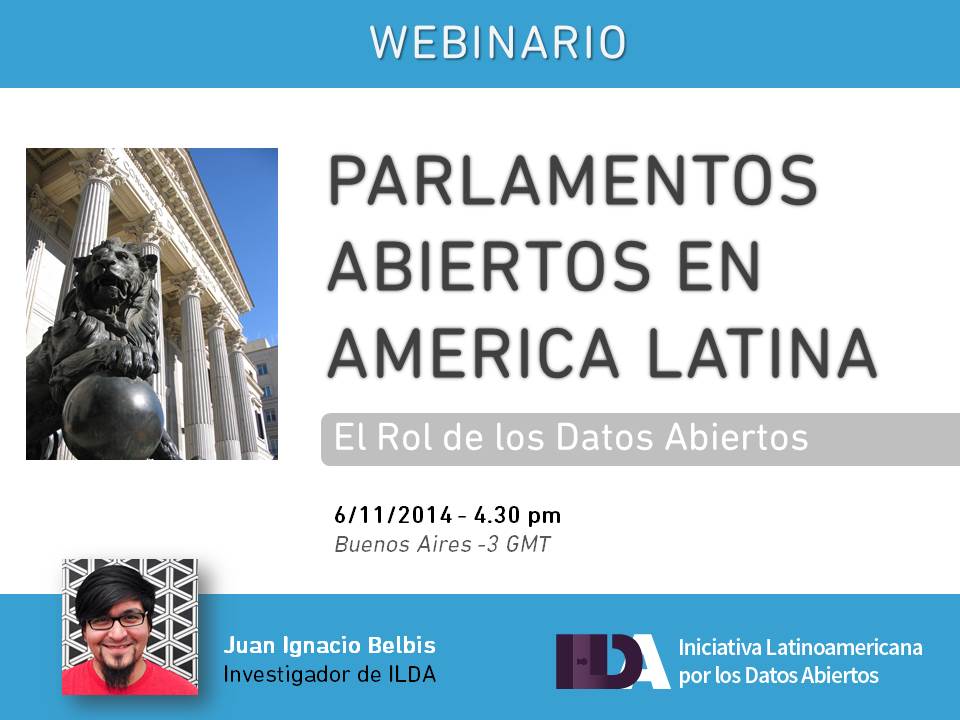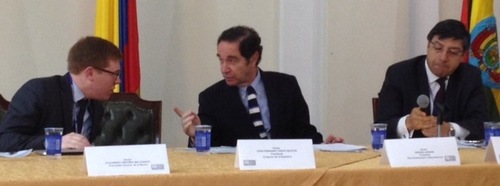La Iniciativa Latinoamericana de Datos Abiertos se planteó desde el primer momento como un espacio no sólo de reflexión en investigación, sino fundamentalmente de conversación e interacción. La participación activa por parte de nuestro equipo en Abre Latam y ConDatos fue un gesto claro en ese sentido, pero nos quedamos con ganas de seguir charlando.
Para sacarnos un poco estas ganas de conversar que nos quedaron, y para tener la oportunidad de romper las barreras geográficas de nuestra región estamos comenzando con un ciclo de webinarios que comienzan este jueves 6 de noviembre a las 16:30 (horario de Buenos Aires). Allí estaremos haciendo un análisis sobre el estado de la apertura parlamentaria en América Latina, contando un poco la experiencia y los aprendizajes de la semana de los datos en México y debatiendo alrededor de los desafíos que se vienen.

Contaremos con los comentarios de María Jaraquemada de la Fundación Ciudadano Inteligente y estaremos completamente abiertos a todo tipo de aporte por parte del público. Para registrarse hay que entrar aquí. Existe un cupo limitado de asistentes. El evento será grabado y eventualmente difundido a través de www.idatosabiertos.org.
